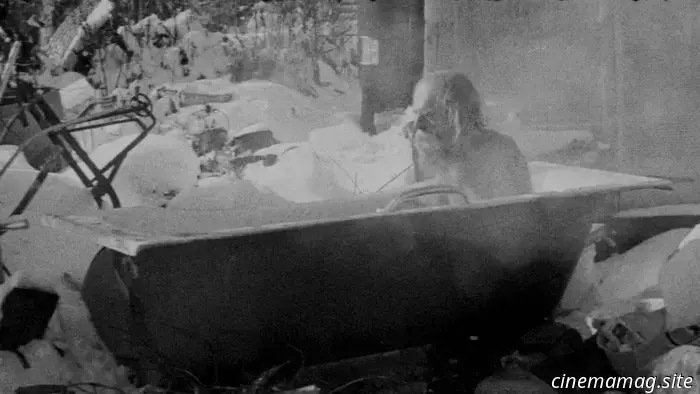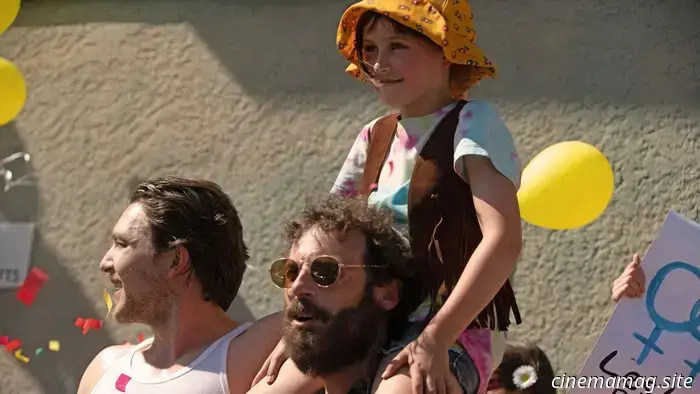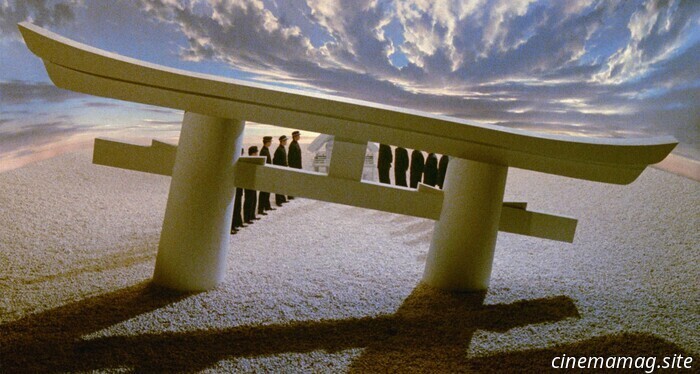
Bogancloch Review: Captivating Documentary Encourages Reflection and Challenges Understanding
Note: This review was initially published as part of our 2024 Locarno coverage. "Bogancloch" will be in theaters on October 3.
“O God, I could be confined in a nutshell and consider myself a ruler of infinite space.”
Hamlet – Act II, scene ii
Like the finest cinema––or at least the type that resonates most deeply with me––Ben Rivers’s films envelop us in narratives that emphasize the enjoyment of experience over the resolution of mysteries. To assert that very little occurs in "Bogancloch"––a sequel to Rivers’s 2011 feature debut, "Two Years at Sea"––is technically accurate but somewhat frustratingly simplistic. For nearly 90 minutes, Rivers’s newest film follows an elderly man living a self-sufficient life in the woods, observing his activities such as bathing, cooking, hiking, hunting, and sleeping.
The character's name is Jake Williams, a Scottish musician who has resided in this remote area of Aberdeenshire for many years, previously depicted by Rivers in the 2007 short "This Is My Land" and again in "Two Years at Sea." You don't need to have seen either of those films to engage with this one––not because "Bogancloch" lacks events, but because delivering straightforward information is not Rivers’s primary concern. The film’s sparse contextual details lend it a nearly universal, timeless quality. Jake's name is never mentioned, nor is the name of his rustic home, which gives the film its title. Aside from a campfire singalong featuring Hamish Henderson’s old Scots ballad, “The Flyting o’ Life and Daith,” the location of this secluded woodland remains ambiguous.
"Bogancloch" abandons the fundamental tenets of traditional storytelling; it encourages reflection rather than understanding. Rivers’s intention is not to satiate your curiosity but to ignite it. In an era where films that refrain from delivering information or making connections for viewers are often labeled as pretentious, his method feels almost subversive. Jake lives as a hermit, and his life remains appropriately enigmatic. We depart from this bucolic depiction with little sense of his true identity, his past, or what spurred him to forsake civilization for a cottage obscured by ivy and pine trees. This is not to imply the film conveys nothing about him; rather, the hints we receive do not seamlessly fit together like jigsaw pieces; each detail Rivers presents reveals another layer, similar to the unfolding petals of a flower.
Amidst this portrayal of Jake’s tranquil existence, there are glimpses of a more wandering past; repeatedly, the screen fades to black for a moment before revealing worn photographs of sunny cities and sandy streets. I counted eight such images, each becoming progressively more abstract, their blemishes transforming buildings and highways into haunting visions reminiscent of a Francis Bacon painting. One image features a road sign directing to Dubai; it's the sole clear geographical reference in a film otherwise suspended in a limbo of space and time. I can only surmise these images are remnants of Jake's previous travels around the globe––one shows him sitting on a sidewalk looking significantly younger. The details of who took it, when, or where it was taken remain unknown. Similarly, I cannot discern the connection between him and the Arabic songs that resonate from old cassette tapes he plays during his routines.
Though "Bogancloch" is a very understated film, it is not a silent one. Music plays a substantial role, whether from the nostalgic tapes, the Henderson song sung around the fire, or the occasional songs Jake sings, like Irving Berlin’s classic “Blue Skies.” However, it’s the natural sounds that emerge from the cottage and its surrounding woods that take precedence. In a film so attuned to the nuances of Jake’s existence––not as a character study but as an exploration of a character and his connection with the environment––the sounds that drift like dust motes from his home and lush surroundings create a symphony that elevates the entire experience into a transcendent realm.
In a wonderful essay for Cinema Guild’s home release of "Two Years at Sea," Dennis Lim observed that it’s challenging to determine if the secluded realms Rivers invites us into are post-apocalyptic or prelapsarian and whether characters are anticipating or have already undergone a fall; “one man's dystopia may very well be another's utopia.” This is true for "Bogancloch" as well. Until Rivers shifts his camera to focus on a group of hikers, one could easily believe Jake is the last person on Earth. Yet, there’s nothing ghostly or foreboding about his seclusion. The atmosphere is not somber but uplifting, even exuberant; even Berlin’s song enhances this sentiment, with its cheerful opening lines: “Blue skies, smilin’ at me / Nothin’ but blue skies do I see.”
Jake is not a survivor

Other articles
 Fairyland Review: Scoot McNairy Delivers His Finest Performance
Please note: This review was initially published during our 2023 Sundance coverage. Fairyland is set to be released in theaters on October 3. Andrew Durham's Fairyland stars Scoot McNairy as Steve Abbott, a single dad who moves to San Francisco with his daughter Alysia in the early 1970s following the tragic loss of his wife in a car crash. Adapted
Fairyland Review: Scoot McNairy Delivers His Finest Performance
Please note: This review was initially published during our 2023 Sundance coverage. Fairyland is set to be released in theaters on October 3. Andrew Durham's Fairyland stars Scoot McNairy as Steve Abbott, a single dad who moves to San Francisco with his daughter Alysia in the early 1970s following the tragic loss of his wife in a car crash. Adapted
 The 38th Tokyo International Film Festival Reveals Its Lineup; Mishima: A Life in Four Chapters Set for Japanese Premiere
Last year, attending the Tokyo International Film Festival brought immense joy, as it features a variety of world premieres alongside restorations and early glimpses at the emerging talents of the future. In a few weeks, I will be going back to the festival, which has today revealed its complete lineup. Junji Sakamoto's Climbing for Life will act as
The 38th Tokyo International Film Festival Reveals Its Lineup; Mishima: A Life in Four Chapters Set for Japanese Premiere
Last year, attending the Tokyo International Film Festival brought immense joy, as it features a variety of world premieres alongside restorations and early glimpses at the emerging talents of the future. In a few weeks, I will be going back to the festival, which has today revealed its complete lineup. Junji Sakamoto's Climbing for Life will act as
Bogancloch Review: Captivating Documentary Encourages Reflection and Challenges Understanding
Note: This review was initially released as part of our coverage of the 2024 Locarno festival. Bogancloch will be in theaters starting October 3. “O God, I could be confined in a nutshell and consider myself a king of infinite space.” Hamlet - Act II, scene ii Much like the finest films—or at least the ones I personally connect with
